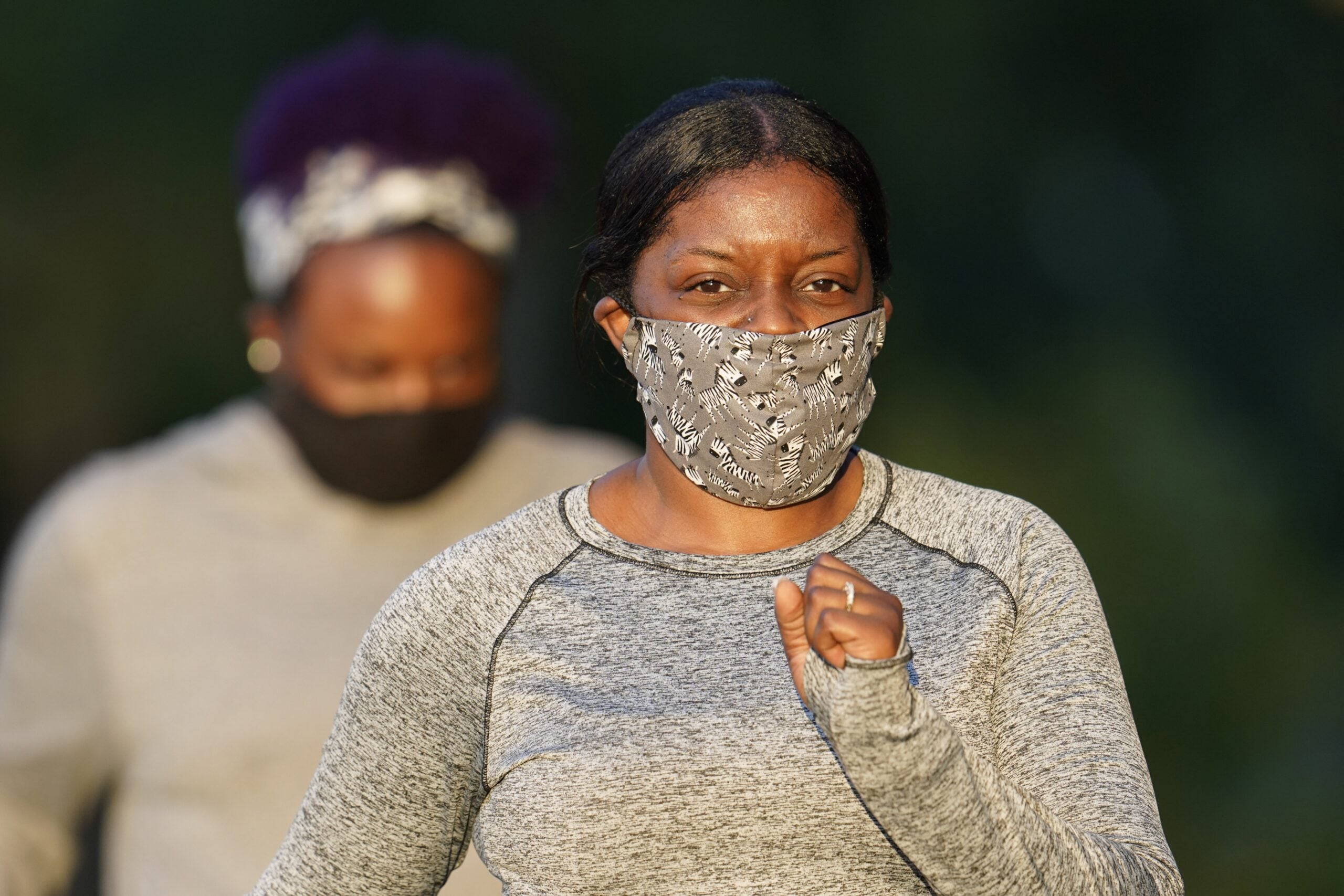The coronavirus pandemic is changing the face of Wisconsin. Literally. More people are covering their face to slow the spread of COVID-19, something federal health officials have recommended.
But it’s not as common in Wisconsin as it is in other states or countries, where it’s either required or more culturally acceptable.
But American’s attitudes may be changing as they’re confronted with the deadly virus.
News with a little more humanity
WPR’s “Wisconsin Today” newsletter keeps you connected to the state you love without feeling overwhelmed. No paywall. No agenda. No corporate filter.
WPR’s WHYsconsin has received several questions asking why private businesses don’t require workers and customers to wear face masks, and why it’s not being enforced. Several of the questions about masks pertained to grocery stores.
Family Fare grocer in Chippewa Falls has a mask policy but shoppers in other stores around the state may find uncovered faces of employees and other customers.
While face masks are required in states like New Jersey and New York, along with some United States cities like San Francisco, they are not mandated in Wisconsin or by federal officials.
“It’s not something written into law at the moment,” said health care attorney Barbara Zabawa. “So people can choose whether to do so or not. But certainly, public health authorities like the federal Centers for Disease Control (and Prevention) and local authorities believe it’s a good idea and a strategy to help minimize sharing of germs.”
Zabawa operates the Center for Health and Wellness Law in Dane County.
The Wisconsin Economic and Development Corp., the state agency that promotes business, has health guidelines for companies allowed to operate during the pandemic.
The list for companies deemed essential during the pandemic advises companies to dedicate resources to identify and mitigate situations in the workplace that may introduce, expose or spread COVID-19. There is no mention of masks.
Face masks are recommended in guidelines from the Occupational Safety and Health Administration, but they are not required.
“They are guidelines which means technically they aren’t law,” said Zabawa. “But to the extent that you don’t follow guidelines and someone gets sick and can trace it back to the fact that you weren’t following guidelines, that could possibly lead to some legal trouble in the future.”
The New York Times reported this week that business lobbyists and executives are pushing the Trump administration and Congress to shield American companies from a wide range of potential lawsuits related to reopening the economy amid the coronavirus pandemic.
Their concern is “retailers, manufacturers, eateries and other businesses will struggle to start back up if lawmakers do not place temporary limits on legal liability in areas including worker privacy, employment discrimination and product manufacturing,” according to the New York Times.
While some businesses may be concerned about legal ramifications as more states consider easing stay-at-home orders, health officials in Wisconsin are focused on keeping the number of COVID-19 cases to a minimum.
“We all are going to need to change our behavior as we go out,” Wisconsin Department of Health Services Deputy Secretary Julie Willems Van Dijk said during a recent press briefing. “I think we will start to see things like face masks out in public as the norm rather than the exception.”
Both federal and state health officials have stressed hand-washing and social distancing to keep the virus at bay. Even with Wisconsin’s stay-at-home order a number of businesses are still open and some are drawing quite a few customers. This drew a cautionary note from Evers during a press conference where he announced additional businesses would be allowed to open up beyond those considered essential.
“We have a lot of essential businesses out there that are serving the public, and we just want to remind them of the importance of social distancing in stores,” Evers said. “There are times when people drive by a large store and the parking lot is full and you know there are hundreds of people in that store. The question should be asked: is there social distancing going on?”







